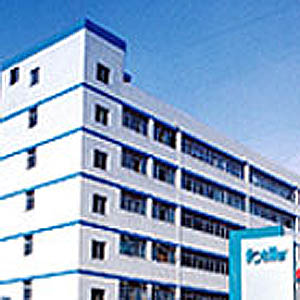|

A recent survey by Zhejiang Provincial Merchant Research Society indicates that some 80 percent of Zhejiang family businesses are facing crises of successors.
"The second generation of business people is really facing problems such as how to make use of its fortune, how to allocate its wealth to the most needed areas, and how to expand its wealth, thus smoothly succeeding their parents," said Chen Ling, head of the Family Business Research Institute at Zhejiang University.
The 406,000 private enterprises in Zhejiang Province (of which over 99 percent are family businesses) yielded 1,254.69 billion yuan of output value by the end of 2006, according to a report issued by Zhejiang government.
Statistics in the report showed that private businesses in the province took the lead for nine consecutive years across the whole country, in terms of total output value, total sales volume, total retail sales of consumer goods, as well as total foreign exchange earning. Among the country's top 500 private enterprises, 203 of them are from Zhejiang, consolidating their top position in the private economic sector in China.
Chen analyzed that private businesses are the most active element, playing an important part in the Yangtze River Delta region. The peak time for the younger generation to inherit their parents' operations comes in the next five to ten years, a critical period to decide successes or failures for many enterprises.
"When I gave lectures at over 30 universities in over 30 cities and provinces over the past six years, I found that it was a headache for many entrepreneurs to hand over their businesses to their offspring," said Mao Lixiang, the former Board Chairman of Faixiang Group. He handed over his first business, a radio enterprise, to his daughter, and his second business -- Fotile, kitchen electric appliances, selling both at home and abroad -- to his son.
Given the fact that some offspring of business people face difficulties running their parents' businesses for various reasons, including lack of training, dislike of school, and self-destructive behavior such as gambling and spending sprees, Mao opened his third business -- running a school to train successors for private businesses.
He founded the Family Business Succession School on December 18, 2006, and in May 2007, the first special training course was instituted here. The courses included business management, English, as well as Chinese culture -- including history, philosophy, literature, and classical Chinese. The aim was to prepare the students to be honest and successful business people.
Currently, 57 students have graduated from this school, half of them from Zhejiang.
"This college is a good platform for us to communicate and discuss the same snags we came across," said 28-year-old Feng Weiwei, one of the students in the first class. She is now president of a technological company, whose trade volume reached 100 million yuan ($14.5 million) in 2008.
Research from Mckinsey & Company, a global management consulting firm, showed that the average family business lifespan is 24 years, and merely 30 percent successfully hand their businesses over to the second generation.
"If China's situation followed suit, then 70 percent of these private businesses would be washed out, and it would cause a big downslide for the country's national industry," said Mao.
He plans to open 10 educational bases in the vicinity of the Fangtai company site for the convenience of students. The family business MBA textbook used here features both theory and practice, with the former learnt by both the old and the young generations, and the latter mainly for young would-be successors. Having established a family business foundation valued at 1 million yuan, Mao plans to build a school site of his own this year, so as to lay a solid foundation for his career and enable his school to last for at least 100 years.
His school has already drawn media coverage from big names such as CCTV, Phoenix TV in Hong Kong and the Washington Post from the United States. In addition to the school opened by Mao, other similar training courses have been coming forth.
"Since family businesses are special compared with ordinary ones, more of these training classes are called for," said Chen.
According to Mao Lixiang, there are more than 5 million private enterprises in China, of which over 1 million facing the problem of deciding successors.
"Even if the number of people receiving training hits 1,000 a year, it's a long way from satisfying the collective need. So the more such training classes, the better," he said.
(Source: China Business News) | 